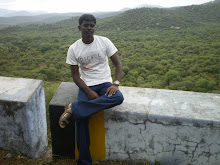How to board a non-stop train while it's moving
Do you always struggle to reach the platform in time when catching a train? Then how about a platform which comes to your house before catching up with a non-stop high-speed locomotive?
That's the idea behind Moving Platforms, a transport concept dreamt up Paul Priestman, director of British design group Priestmangoode.
The high-speed train would run non-stop between two ends of a continent, such as from Los Angeles to New York, never actually entering cities or towns. Instead, a network of trams would carry passengers out of the city to a line outside.
"You could get onto a tram on your street and then seamlessly travel from that onto the high-speed line
and then get off at your destination in another city, then onto a tram and then end up at your destination without ever having gone in your car or perhaps got on a bus," Priestman told CNN.
The tram would speed up while
the train slowed down, allowing the two to safely dock for the same time a train would normally spend sitting in a station. Passengers could also use trams to transfer from one high-speed train to another.
But while the idea sounds innovative - New Scientist first featured it in an article in 1969.
The idea echoes a similar scheme created by Taiwanese inventor Peng Yu-lun in 2007. Yu-lun's concept keeps regular platforms, but passengers use them to board a small shuttle that attaches to the roof of a high-speed train.
Subscribe to:
Post Comments (Atom)

No comments:
Post a Comment